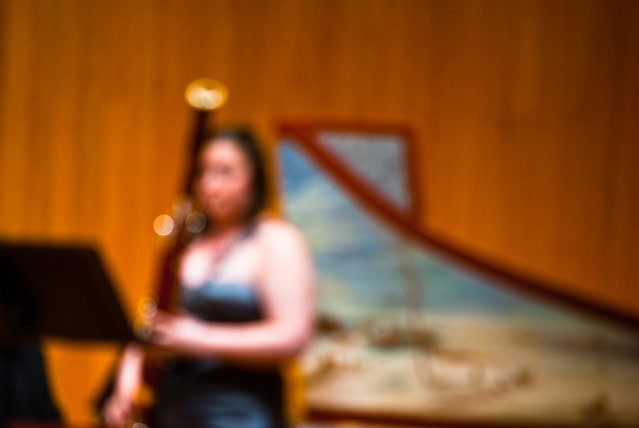Tag: multiple woodwinds degrees
-
University of New Mexico offers new multiple woodwinds degree
The University of New Mexico is now offering a masters degree program in multiple woodwinds. A few items of interest from the degree requirements (also see an update in the comments): It is a 4-instrument degree, with one “primary” and three “secondary” instruments. Two semesters of study are required on the primary instrument, and one …
-
Reader email: multiple woodwinds degree or single-instrument degree?
I get email on a pretty regular basis from people who are considering multiple woodwinds degree programs. They usually have excellent questions for which there are no real answers, but I’m always happy to try to offer whatever perspective I’ve got. I heard recently from one of my readers who is working on a bachelor’s …
-
More thoughts on multiple woodwinds degrees
I often get email from people who are considering pursuing a college or conservatory degree in multiple woodwinds. Now that I’ve completed two of them myself, here are a few thoughts. If you want to enter a multiple woodwinds degree program, you should already have at least a basic technical command of each instrument to …
-
Doctor of Musical Arts
Dr. Bret Pimentel, D. M. A. The University of Georgia May 9, 2009
-
Auditioning for a multiple woodwinds degree program
I had an exchange by email with someone today, that I thought might be of use to all you hordes of prospective multiple woodwinds majors out there. Hi Mr. Pimentel, My name is Mike ________ from _______ University, and I am an aspiring doubler. I have been doing some looking around at graduate schools and …
-
Brass doubling?
—
in MusicianshipI have now successfully completed both my written and oral comprehensive exams, and am one large step closer to finishing a doctorate in multiple woodwinds performance. In the oral exam, one of my professors asked why woodwind doubling is a well-recognized musical specialty, but doubling on brass instruments is not. The question was an odd …

